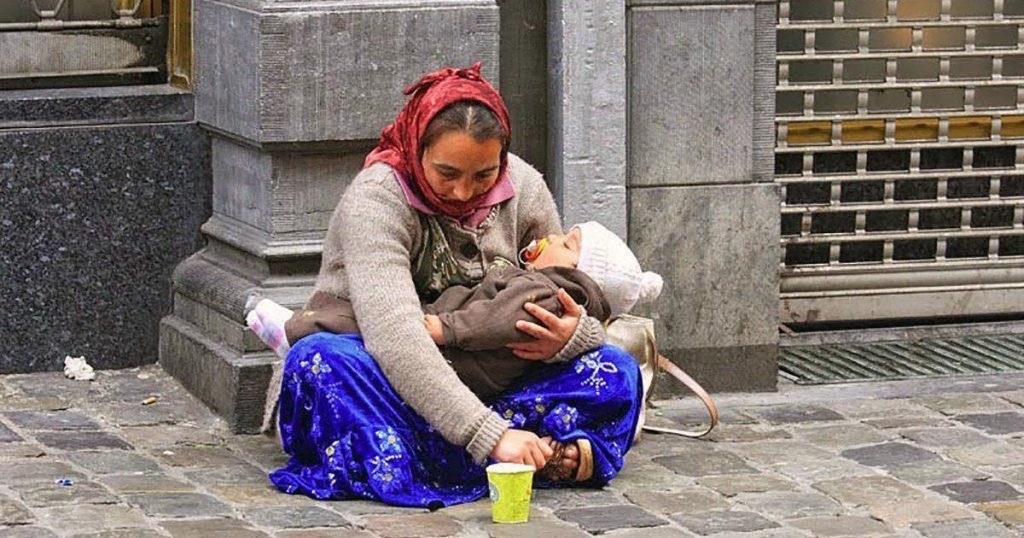
Switzerland 5 days in prison for asking for money
In Switzerland it is forbidden to ask for money even when you are hungry. Beggars can be fined … and you will be fined.
A person who asks for money logically has no money. How to pay a fine when you have no money. By begging? This law should limit begging except that to pay the fine it encourages it, otherwise it is prison.

In 2011 Ms Lăcătuş, who was unable to find work, began asking for charity in Geneva. On 22 July 2011 she was ordered to pay an initial fine of CHF 100 (approximately EUR 93) under section 11A of the Geneva Criminal Law Act, which makes it an offence to beg in public places. A sum of CHF 16.75 (approximately EUR 15.50) was confiscated from her on that occasion after a body search by the police. Over the next two years Ms Lăcătuşwas issued with summary penalty orders requiring her to pay eight further fines of the same amount, and was twice taken into police custody for three hours.Each of the fines could be replaced by a one-day custodial sentence in the event of non-payment.
Ms Lăcătuş appealed against the penalty orders. In a judgment of 14 January 2014 the Police Court of the Canton of Geneva found her guilty of begging. The court ordered her to pay a fine of CHF 500, to be replaced by a five-day custodial sentence in the event of non-payment, and upheld the confiscation of CHF 16.75. An appeal lodged by the applicant with the Criminal Appeals and Review Division of the 2 Court of Justice of the Canton of Geneva was dismissed on 4 April 2014. Ms Lăcătuşappealed to the Federal Court against that decision, but her appeal was dismissed on 10 September 2014.
From 24 to 28 March 2015 Ms Lăcătuşwas detained in Champ-Dollon Remand Prison for failure to pay the fine.
Relying on Article 8 (right to respect for private and family life, home and correspondence), theapplicant alleged that the prohibition on begging in public places constituted unacceptable interference with her private life as it had deprived her of her means of subsistence. Under Article 10 (freedom of expression), she maintained that the prohibition on begging had prevented her from conveying her plight by asking for charity. Relying on Article 14 (prohibition of discrimination) read in conjunction with Article 8, the applicant alleged that she had been the victim of discrimination on account of her social and financial situation and her origins.
The Court observed that the applicant came from an extremely poor family, was illiterate, had no work and was not in receipt of social benefits. Begging constituted a means of survival for her. The Court considered that, being in a clearly vulnerable situation, the applicant had had the right, inherent in human dignity, to be able to convey her plight and attempt to meet her basic needs by begging.Regarding the nature and severity of the penalty, the Court observed that the applicant had been ordered to pay a fine of CHF 500, to be replaced by a five-day custodial sentence in the event of non-payment. As she had been incapable of paying this sum, the applicant had in fact served a custodial 3sentence in prison. The Court observed that this was a severe sanction. A measure of this kind had to be justified by sound reasons in the public interest, which had not been present in this case.As to whether less stringent measures could have achieved a comparable result, the Court noted that in its judgment of 9 May 2008 the Federal Court had found that less restrictive legislation would beineffective, referring to the findings of law made in its previous judgments.A comparative-law survey of legislation on begging showed that the majority of Council of Europe member States imposed more nuanced restrictions than the blanket ban under section 11A of theGeneva Criminal Law Act. Even though the State had some margin of appreciation in that regard, compliance with Article 8 required the domestic courts to examine thoroughly the particular situation in the case before them. Accordingly, the Court could not subscribe to the Federal Court’s argument that less restrictive measures would not have achieved a comparable result.The Court considered that the penalty imposed on the applicant had not been proportionate either to the aim of combating organised crime or to the aim of protecting the rights of passers-by, residents and shopkeepers. The applicant was an extremely vulnerable person who had been punished for her actions in a situation in which she had in all likelihood had no choice other than to beg in order to survive. In the Court’s view, the penalty imposed had infringed the applicant’s human dignity and impaired the very essence of the rights protected by Article 8, and the State had thus overstepped its margin of appreciation in the present case.
The Court held that Switzerland was to pay the applicant 922 euros (EUR) in respect of non-pecuniary damage.
More information https://hudoc.echr.coe.int/eng#{%22itemid%22:[%22002-13092%22]}